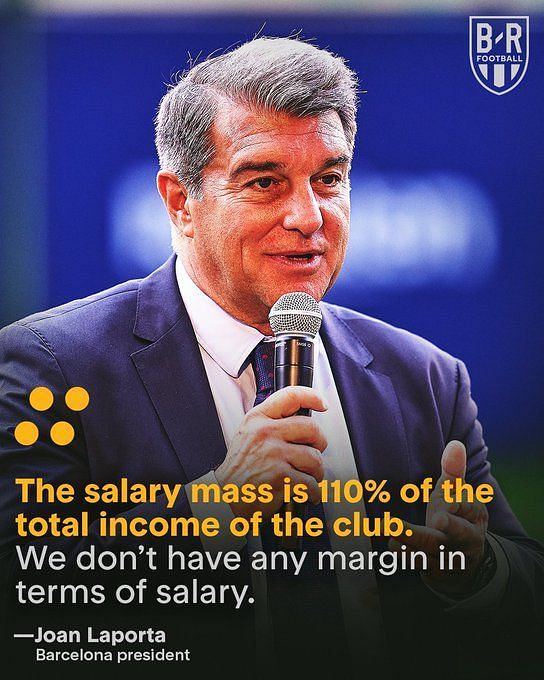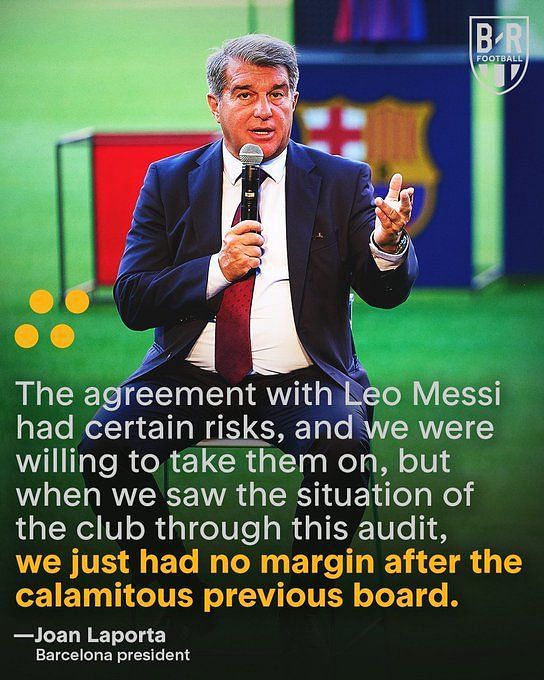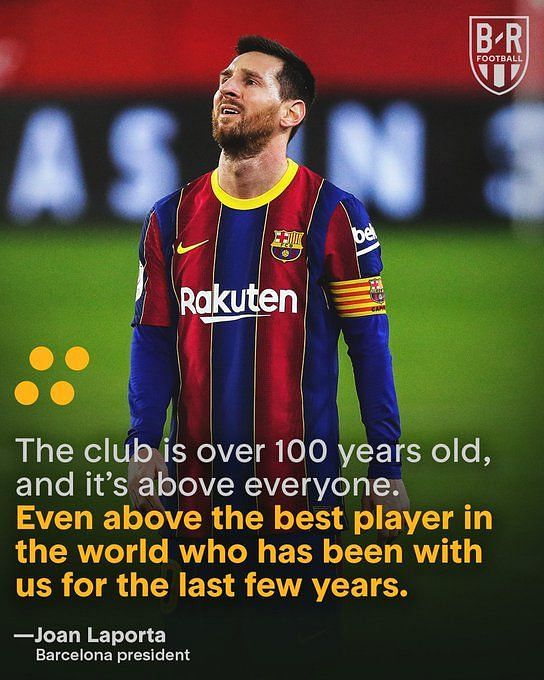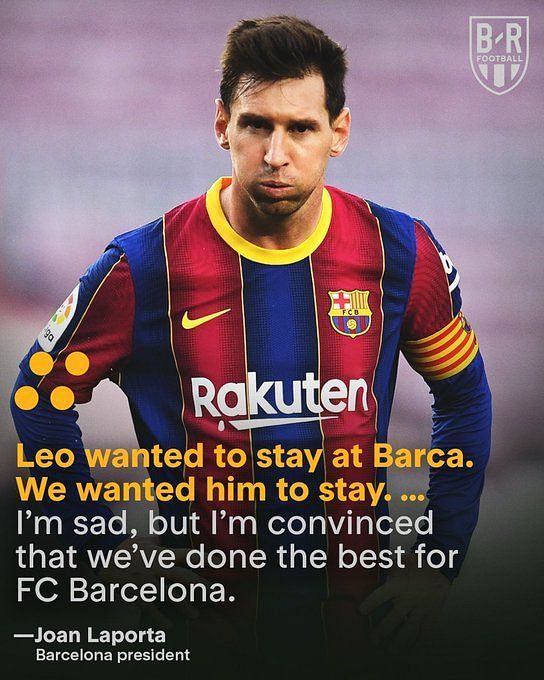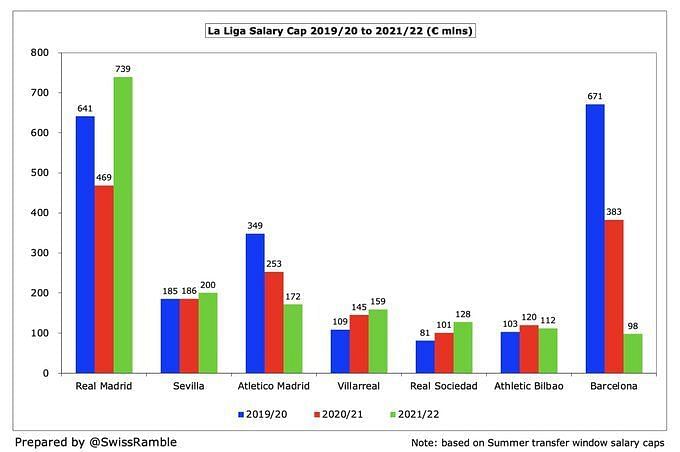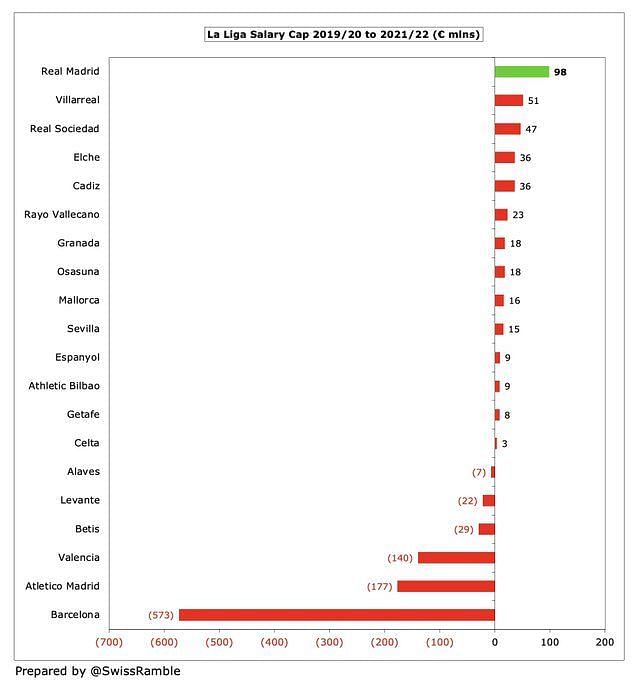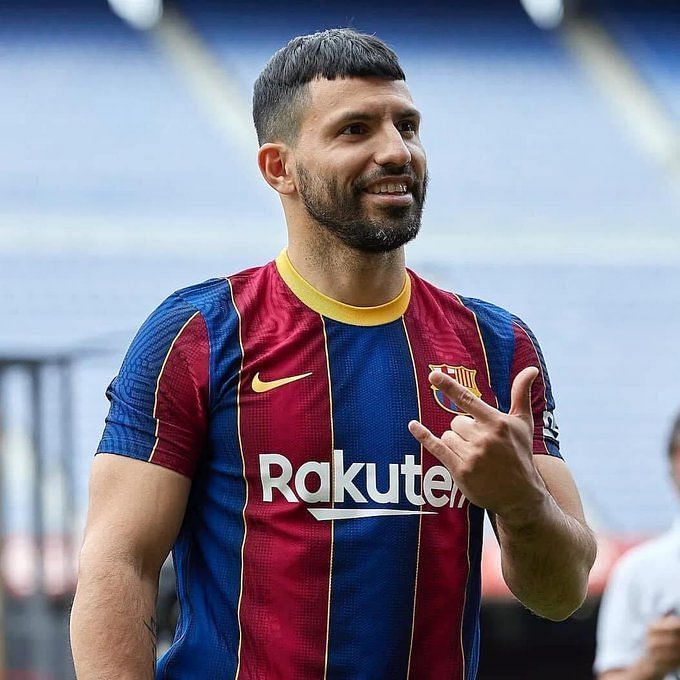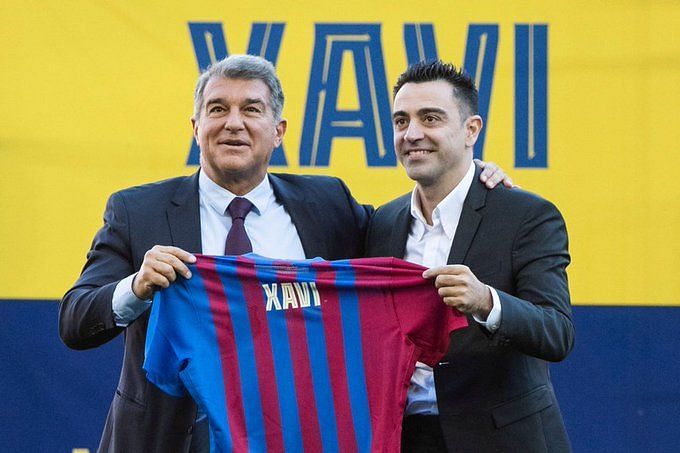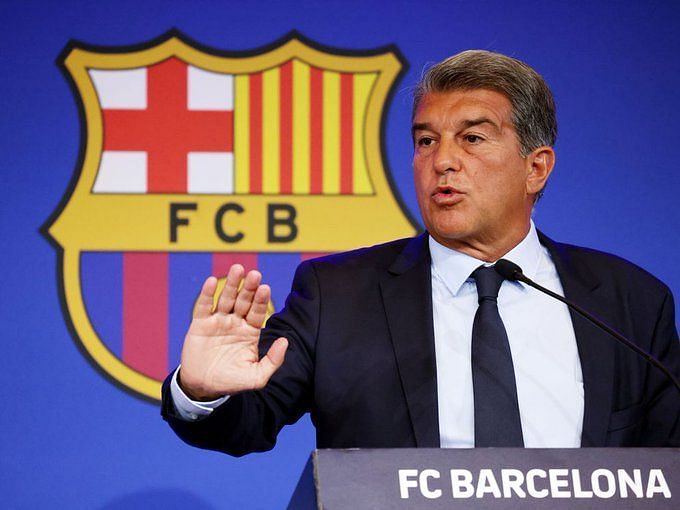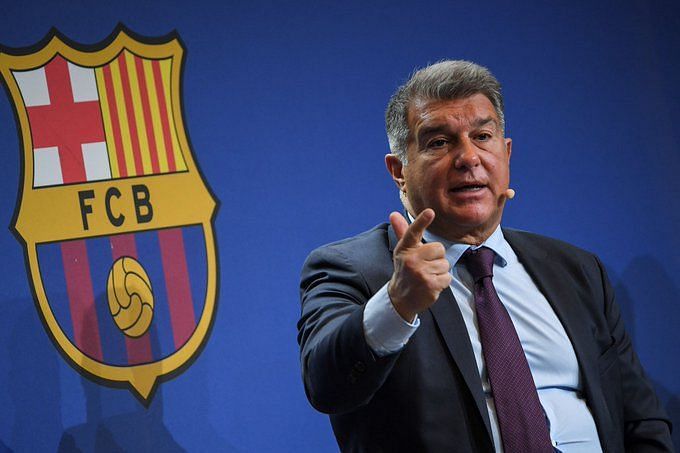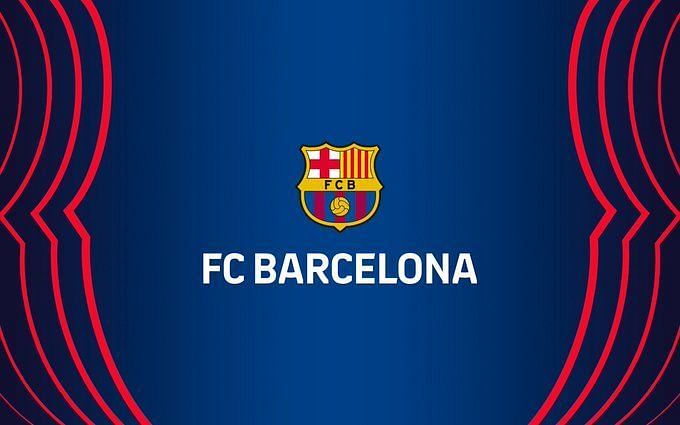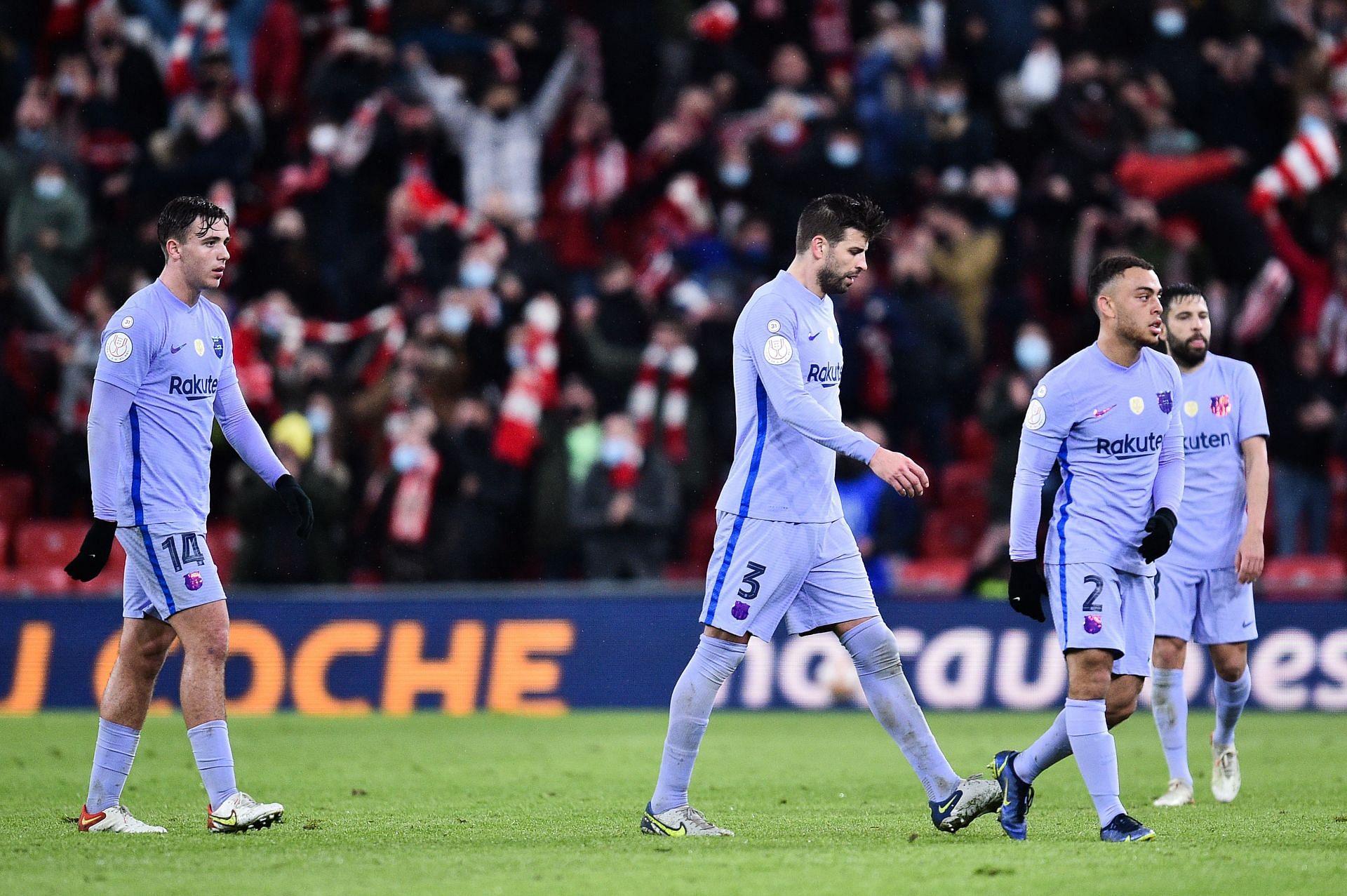
La Liga salary cap and how it continues to affect Barcelona
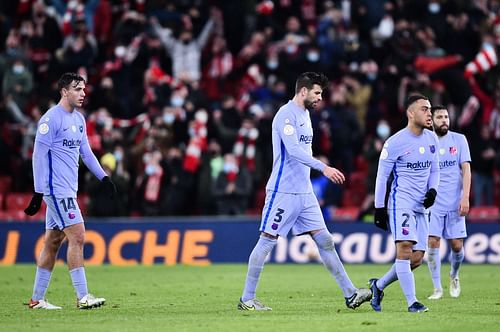
La Liga side Barcelona had a good January transfer market window last month with them signing Adama Traore, Ferran Torres, Dani Alves and Pierre-Emerick Aubameyang, with the latter being added to the squad on deadline day (January 31). In contrast, they were only able to offload Philippe Coutinho, who sealed a loan move to Aston Villa.
How can Barcelona afford to do so much business after experiencing a lot of financial trouble in the summer transfer window which saw Antoine Griezmann, Emerson Royal, Junir Firpo, Miralem Pjanic, Francisco Trincao, Jean-Clair Todibo, Carlos Alena and club legend Lionel Messi leave the Nou Camp?
This is a question on the minds of most fans and critics, who assumed it would be a relatively quiet transfer window for the Blaugrana.
But the real question one should be asking is are Barcelona in a good financial position after the end of the January transfer window? And the simplest answer would be no, they are far from it.
But to dive a little deeper into why their problems can only multiply through these deals, it is important to understand La Liga's salary cap system of and the reasons behind it.
La Liga salary cap is a huge obstacle for the biggest clubs in Spain
In 2013, La Liga set up an economic control department which oversees the finances of the Primera and Segunda clubs and establishes a strict squad cost for each season.
The squad limit is then decided based on the expected revenues for each club in its upcoming seasons. The estimates include expected revenues for the coming season, but also profits and losses from previous years, overhead costs, non-player contracts, current savings, any existing debt repayments, investments and sources of external financing.
Once the squad cost is established, clubs can choose to spend this money on transfers, wages, reserve teams, academy, head physio, assistant coach and even non-registered squad players.
This formula is different from that of other European football entities, including UEFA and the Premier League.
These institutions assess the financial results of previous seasons, whereas La Liga decides one for each club in the league depending upon their expected income for the upcoming campaign. Additionally, each club can spend only 25% of their savings from transfers and wages on new deals.
The four main metrics used to whip up this formula are as follows:
- Economic Profitability- Ordinary profit before tax divided by total assets
- Financial Profitability- Ordinary profit before tax divided by equity
- General Liquidity- Current assets divided by liquid liabilities
- Solvency- Equity divided by total assets
But one might still wonder how effective this method is in reality. The crux of this system lies in the transfer window, when clubs wish to sign players and have to use the "La Liga Manager" software system and enter all the details for the deal. This will then be checked by the economic team and if the wages and transfer fee of the particular player result in the club exceeding the limit set by the league, the app flashes red indicating that the club shall now either have to reduce the wages of existing squad players or sell a player, which would help in accommodating the new recruit.
How did all of this affect Barcelona in the summer?
Barcelona reported losses of €481million for the 2020-21 season. This has led to their operating costs being reduced to €97million, quite a dip from last season, when it was €382million, and nearly €650million lesser than rivals Real Madrid.
The Spanish outfit then had no choice but to offload Lionel Messi because there would be no possible method through which the deal could be shaped to suit the league, club and the player. Similarly, they had to let go of some young talents like Emerson, Todibo, Trincao, Mathues Fernandes, while Miralem Pjanic and Samuel Umtiti were asked to terminate their contracts. Pjanic secured a loan move but the latter remained at the club.
But last summer, Barcelona also signed Sergio Aguero, Eric Garcia and Memphis Depay on free transfers. But to register them into the league, Gerard Pique had to take a pay cut, while Sergio Busquets and Jordi Alba also did the same. The trio are more or less the core of the team and perhaps realized that the non-registration of some of the signings could result in further downfall of the club they love so dearly.
But that is beside the point. Let us now see how the January transfer window worked out for Barcelona and what it means for them financially.
January transfer window- Good business but at a potential cost
First, let's address the football side of things , none of the players Barcelona managed to sign have managed to reassure the fans about the future of their club's playing style.
Traore had one goal involvement in the Premier League this season, while Arsenal terminated Aubameyang's contract due to disciplinary issues and poor form and it practically made more sense for them to offload him than keep him at the club. Dani Alves might still possess more footballing intelligence than most players in the squad, but the 38-year-old ace is only as good as his aging legs. Ferran Torres has been injured for much of the current campaign but is arguably the only good potential prospect they have in their hands.
Let us now assess the financials behind their move
1) Ferran Torres- The Spaniard joined Manchester City in the summer of 2020 for an initial fee of £20.8million. In his 18 months in England, he contributed 20 goals in 43 appearances and also played admirably for Spain at the Euros.
Given that he is a home-grown promising prospect, Barcelona decided to seal a move for him last month but had to spend handsomely for the 21-year-old ace. The initial fee is reported to be £46.3million, plus add-ons worth £8.2million. Another £5.9million is more or less guaranteed. Although a player's transfer fee is amortized and paid over a number of years, the entire deal is nearly worth £61million before taking his wages into account.
2) Adama Traore - As mentioned before, the former Wolverhampton Wanderers attacker did not perform well enough this season to warrant a move to a club as big as Barcelona. Yet, the club decided to sign him on a loan deal, with an option to make it permanent in the summer for £25million.
It is also widely reported that he has agreed to take a pay-cut to re-join his boyhood club. The fee was also on a lower side since the player only had 18 months left on his current contract at the Premier League club.
3) Dani Alves - The Brazilian star, who was exceptional for the Spanish club during his first stint at the club, was a free agent since leaving Sao Paulo in September. Barcelona decided to add him to their ranks in November on a free transfer, although little is known about his wages. It is important to understand that players who join clubs as free agents normally command a signing-on bonus and a sizeable salary. While there is no certainty that Alves has been given something similar, negotiations might not have been easy.
4) Pierre Emerick Aubameyang - This was nearly a fiasco but one that was saved by the player and Arsenal's willingness to part ways with each other. The Gabonese ace was not a part of the Gunners' squad for a number of weeks and tensions were brewing between him and Mikel Arteta following the striker being stripped of the captaincy.
Some Saudi Arabian and Eastern European sides tried to sign the center-forward last month but his heart was set on a move to Barcelona. He apparently arrived in the country even before the transfer was concluded.
On deadline day, it felt like a deal would not go through due to the conditions over a temporary move. But the two clubs eventually reached an agreement that would saw the English side terminate the player's contract, thereby allowing him to join Barcelona as a free agent.
How can Barcelona afford all this?
The reason Barcelona were able to finance all of this was because they secured a loan worth £508million from American multinational investment bank, Goldman Sachs in the summer. This could be paid over the next 35 years, with five additional years handed to the club to help restructure their finances.
A garangutan amount for sure, but it took a lot more than that to finance all four deals. Sergio Aguero retired mid-season while Samuel Umtiti had his contract extended but agreed to a wage cut to facilitate the registration of Torres.
Traore arrived on a loan deal and there are no guarantees that his move could be made permanent. Aubameyang had to take a massive pay cut to join Barcelona, while his salary for this season shall also be proportinately paid out by Arsenal.
Moreover, all of this happened in the shadow of the Ousmane Dembele saga, who was expected leave in January after negotiations on a new deal broke down.
The France international stayed put and could now leave on a free transfer in the summer, thereby resulting in a financial loss for the Nou Camp outfit who could have eked out some money by selling him in January, even if it was minimal.
Denouement
Barcelona's debt in December 2021 stood at £849million. It has come down reasonably from the summer, when the gross debts were £1.4billion. Regardless, it is not a pretty situation. They continue to lose out on transfer fees, because everybody is hesitant on buying their under-performing stars.
Their highest-paid individuals are also not ready to leave the club because they understand that nobody else in world football will foot their wage bill. The exit of Philippe Coutinho last month was also possible after Barcelona agreed to pay 35% of his salary.
La Liga stands firm on their policy of a salary cap because it disallows clubs from increasing their debt year after year, while it also lessens the dependence on a wealthy owner. They offered Barcelona an increased squad cost limit in the summer by getting them to sell 10% of their business to CVC capital partners, who acquired a stake in the league. But the Catalonian side did not want to accept this because, quite honestly, it would not have changed their financial position all that much.
But the club have not found alternatives either. Signing players in January has only weakened their financial stature, especially due to a lack of departures. Of course, a lot of these problems have been caused by former president Josep Maria Bartomeu, but current president Joan Laporta cannot keep hiding behind that curtain for long.
The 5-time Champions League winners could end up in serious trouble if they do not sell some big players in the summer as their wage bill could increase incrementally once some of the winter transfer window signings are fully covered by the club.
The current state of the club stems from the financial illiteracy and arrogance of the people at the top of the club and the absence of an understanding of how to run a sustainable football entity. The January transfer window often depicts the ambitions of a particular team but Barcelona need to stop spending funds like a top club in the transfer market at a time when their wallet is that of a mid-size club, and even saying that is a stretch.
Their problems run deeper than they perhaps realize and it will eventually catch up with them unless they are fiscally responsible. A rebuild is necessary and maybe Xavi Hernandez is the right man to lead it, but everything comes at a cost and working on a budget is something the club needs to learn before it is too late.
